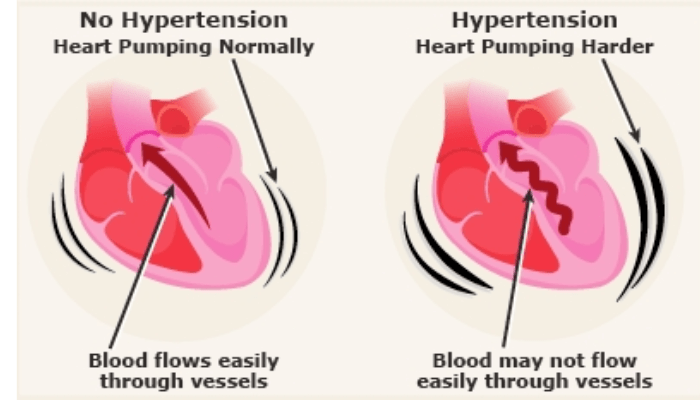Hypertension Secret Revealed: Unravel the Mysteries!
High blood pressure is a serious health condition that affects a large number of people around the world. Also known as high blood pressure, this condition occurs when the blood pressure in the arteries is constantly high, putting an overload on the heart and blood vessels.
The causes of high blood pressure can vary and include genetic factors, unhealthy lifestyle, obesity, excessive salt intake, chronic stress and other underlying health issues such as diabetes and kidney disease. It’s important to note that high blood pressure is often asymptomatic, which means that many people could be living with high blood pressure without even knowing it.
Fortunately, there are several effective approaches to treating high blood pressure. In addition to lifestyle changes, such as adopting a balanced diet, reducing salt intake, exercising regularly and managing stress, it is often necessary to use medications prescribed by a health professional.
What age can have hypertension?
High blood pressure is not a condition restricted to a specific age group and can affect people of different ages. Although it is more common in older adults due to aging and longer exposure to risk factors, it is also possible for young people and even children to develop high blood pressure.
In addition to traditional risk factors such as an unhealthy lifestyle and family history, hypertension in young people may be related to underlying medical conditions such as kidney or endocrine diseases. Therefore, it is essential that people of all ages be aware of their blood pressure and seek appropriate medical care to monitor and control this condition.
What is high blood pressure causes symptoms and treatment?
High blood pressure, also known as high blood pressure, is a condition in which the blood pressure in the arteries is constantly high. This can happen due to a combination of factors such as genetic predisposition, unhealthy lifestyle, obesity, excessive salt intake and chronic stress.
The symptoms of high blood pressure can be varied or even non-existent, but some individuals may have:
- Persistent headaches.
- Dizziness.
- Blurred vision.
- Shortness of breathe.
- Frequent nosebleeds.
- Excessive tiredness.
Is it dangerous to sleep with high blood pressure?
Sleeping with high blood pressure can pose health risks. When a person with uncontrolled high blood pressure sleeps, the body may have difficulty maintaining a stable blood pressure during rest. This is because during sleep, the body goes through different phases, including periods of deep relaxation.
It is essential that people with high blood pressure take measures to control their blood pressure while sleeping. This includes following medical advice on the proper use of antihypertensive medications, adjusting your sleeping position to promote proper circulation, and adopting an environment conducive to rest, such as a comfortable mattress and a room with adequate temperature.
What diseases does hypertension cause?

- Cardiovascular Disease: High blood pressure is a significant risk factor for heart disease such as coronary heart disease, heart failure, angina, and cardiac arrhythmias.
- Stroke: High blood pressure can lead to narrowing and weakening of blood vessels in the brain, increasing the risk of ischemic or hemorrhagic stroke.
- Kidney disease: Chronic high blood pressure can damage the kidneys over time, resulting in chronic kidney disease or kidney failure.
- Eye problems: Uncontrolled high blood pressure can damage the blood vessels in the eyes, resulting in hypertensive retinopathy and, in severe cases, vision loss.
- Peripheral vascular diseases: High blood pressure can lead to narrowing and hardening of peripheral blood vessels, increasing the risk of conditions such as peripheral artery disease and gangrene.
- Pregnancy Complications: High blood pressure during pregnancy, such as pre-eclampsia, can be dangerous for the mother and fetus, and can lead to serious complications such as premature birth and fetal growth restriction.
What is the upper limit of high blood pressure?
The upper limit considered for blood pressure is generally defined as 140/90 mmHg. This value refers to measuring the systolic blood pressure (the first number) over the diastolic blood pressure (the second number). Values above 140/90 mmHg are considered high and indicative of arterial hypertension.
It is necessary to bear in mind that the upper blood pressure limit may vary according to age and the presence of other health conditions. In some cases, such as older individuals or people with chronic illnesses such as diabetes or kidney disease, a lower limit may be set.

Deixe um comentário